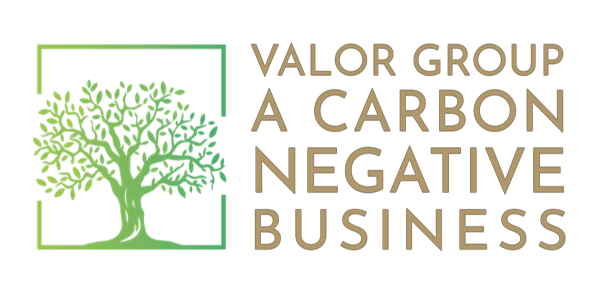Climate change has heavily influenced many organisations to collectively tackle their Greenhouse Gas emissions in various ways. Valor Energy Group has prematurely met this original 2-year target by rigorously reducing the carbon footprint of the business in its entirety and its employees.
Through various methods stated in our Greenhouse Gas Emissions Annual Report 2020, for the period; 1st January to 31st December 2020, Valor Energy Group have removed more carbon from the atmosphere than we produced as a result of our Scope 1, Scope 2 and significant Scope 3 greenhouse gas emissions. You can view our report by clicking on this link
Journey to Carbon Neutral 2022
Valor Energy Group had a 2-year plan to be carbon neutral by the end of March 2022. How did we get there early?
- Calculated and monitored our carbon footprint.
- Reduced our emissions wherever possible.
- Offset our remaining emissions.
Reduction of our Emissions
Valor Energy Group had a 2-year plan to be carbon neutral by the end of March 2022. How did we get there early?
- Consolidation of Business Premises across the Group during 2020 and 2021
- Implementation of Travel Policy to manage international travel.
- Increased our use of conference calling facilities in order to reduce the need for local and international travel.
- We work with our clients wherever possible to reduce the greenhouse emissions associated with the transportation of our people and equipment.
Offsetting our Remaining Emissions
Valor Energy Group has actively supported Carbon Offset projects both locally and internationally.
We have partnered with Forest Carbon who lead the way in UK woodland creation for carbon capture. Their partner projects have planted over 9.5 million new trees since 2006, removing nearly 2.5 million tonnes of CO2 from the atmosphere. Additionally, they provide a host of other benefits to society, including flood mitigation, enhanced biodiversity and, increased public access. Through our partnership, we have helped support a UK tree planting scheme certified to the Woodland Carbon Code, and 2 international peatland and forest conservation projects in Indonesia and Brazil, certified to VERRA and CCBA standards.



